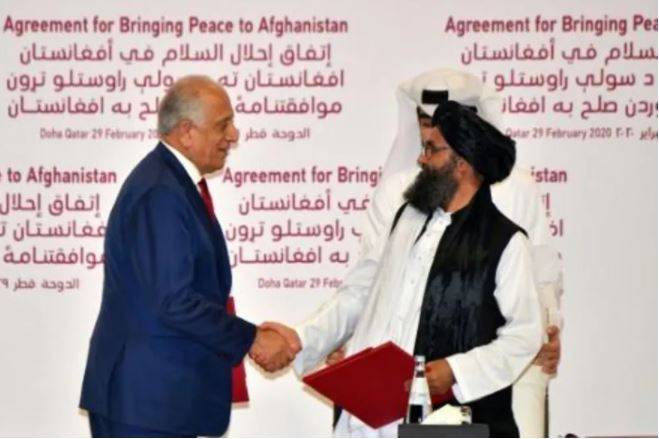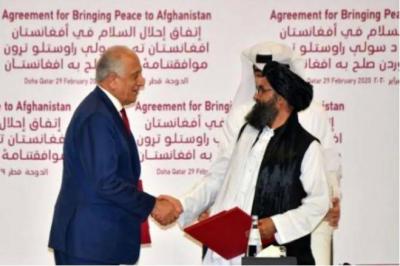U.S. Secretary of State Antony Blinken announced that U.S. envoy to Afghanistan Zalmay Khalilzad resigned from his position on Monday, a move that comes after months of diplomatic efforts failed to prevent the Taliban from seizing power in his home country. Blinken stated in a brief announcement that deputy envoy to Afghanistan Thomas West, who served as an advisor to the White House when President Joe Biden was vice president under Barack Obama, will succeed Zalmay Khalilzad.
In the resignation letter sent to Secretary Blinken, Khalilzad defended his efforts while acknowledging their failure, stating that he wishes to step down during this "new phase" of U.S. policy regarding Afghanistan. The U.S. diplomat said in his resignation letter that "the political agreement between the Afghan government and the Taliban did not go as planned," adding that "the reasons for this are very complex, and I will share my thoughts with you in the days and weeks ahead."
Khalilzad is a seasoned diplomat born 70 years ago in Afghanistan, having held high-ranking positions during the presidency of George W. Bush, serving as the U.S. ambassador in Kabul, then in Baghdad, and later at the United Nations. He hails from Mazar-i-Sharif in northern Afghanistan and speaks Pashto and Dari, the two main languages of his home country.
Khalilzad took charge of U.S.-Afghanistan relations in 2018 after being appointed by former President Donald Trump's administration as a special envoy to oversee negotiations with the Taliban, negotiations that did not include the U.S.-backed government in Kabul. These negotiations resulted in a historic agreement in Doha in February 2020, wherein the United States pledged to withdraw from Afghanistan the following year.
However, peace negotiations between the Taliban and the Kabul government made little progress, and as the date for the withdrawal of U.S. forces from Afghanistan approached, the government forces, built up by the U.S. over 20 years, collapsed within days. It seemed that the agreement outlined by Khalilzad was merely a series of American concessions, as it stipulated the U.S. exit from Afghanistan without a ceasefire and without establishing a framework for any future peace process to end the war.
Instead of securing guarantees from the Taliban in the months following the agreement, Khalilzad intensified pressure on the Afghan government, forcing the presidency to release thousands of Taliban prisoners who immediately bolstered the ranks of the movement's fighters. The agreement also heightened pressure on the Kabul government by initiating a countdown due to the U.S. commitment to withdraw all of its troops from Afghanistan by May 2021, a deadline later extended to September. This left the Afghan government with little time and space for maneuvering.
President Joe Biden's decision in April to proceed with the withdrawal ignited the final spark, unleashing a comprehensive Taliban offensive that forcibly toppled the Afghan government on August 15.




